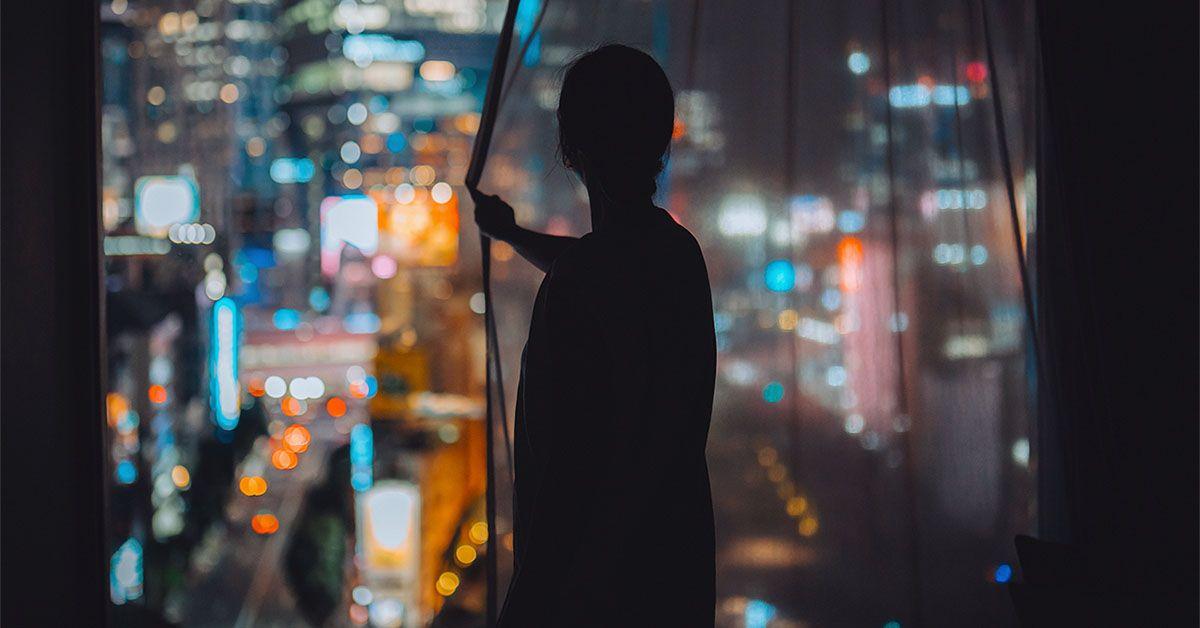Exposure to light during sleep is linked to an increased risk of cardiovascular disease, according to a new study.During sleep, ambient light puts stress on the brain, leading to hardening of the arteries, which often leads to heart attacks and strokes.
- A recent study reported that exposure to light during sleep is associated with a higher risk of cardiovascular disease.
- During sleep, ambient light overloads the brain, which can cause inflammation of the arteries, which can lead to a heart attack or stroke.
- For the best sleep environment, dark is better, but complete darkness is best.
A new study builds on existing evidence that sleeping in complete darkness can be harmful to your health, specifically damaging your cardiovascular system.
Exposure to high levels of sleep is associated with stress-induced inflammation, which is known to cause inflammation throughout the body.This inflammation can increase the risk of heart attack and stroke.
After 10 years, 17% of the study participants had developed serious cardiovascular disease.
The authors concluded that as the amount of nocturnal (LAN) Perfect increased, the risk of heart disease increased.
Each standard deviation of light was associated with a 35% increased risk of heart attack over the next five years and a 22% increased risk over the next 10 years.
People who live in areas with high environmental or social stressors—including traffic noise and low neighborhood income levels—are at greater risk from LAN.
This study
The study included 466 adults who received PET/CT brain scans between 2005 and 2008 at Massachusetts General Hospital in Boston.
Participants have an average age of 55, and 43% of people.Almost 90% of the participants are white, and only 10% are non-white.
Scans were performed as routine hospital imaging.CT scans revealed anatomical details of the participants' brains, while pet scans recorded metabolic activity in their tissues.
None of the participants had heart disease or cancer at the time of the exams.
To measure lighting conditions in every home where objects were used in business
The radiative transfer model provided highly localized estimates of sky brightness based on satellite data.(The modeling did not include natural starlight and moonlight.)
A new study finds that sleeping in a dark environment can affect sleep and insomnia, says Jonathan Cedernaes, an insomniac.
“Both recruitment and human intervention studies demonstrate that LAN can destroy many Russian systems, disrupting both metabolism and inflammation,” he told Healthline.
For example, a 2022 study in which one group of participants slept in a normal room with about 100 lux (lx) of light—which is considered the low end of average bedroom light—while another group slept in dim light of less than 3 lux.
The first group showed increased heart rate, decreased deep sleep, and decreased insulin sensitivity, Cedernaes said.
In the last cohort
Blue light from mobile screens is a known barrier to sound sleep, but ambient light also contributes.
A 2022 meta-analysis of seven studies found that those with higher indoor LAN exposure - a 22 percent higher risk of sleep problems.
Additionally, a 2014 study of 700 older adults showed a direct link between PVD and atherosclerosis, in particular increased
“Inflammation is a result of stress.And inflammation is the main driver of atherosclerosis.So it's heart disease and stroke,” said Dr. Jayne Morgan, a cardiologist and vice president of health affairs at Hello Heart. Morgan was not involved in the study.
"Girls and the brain and the brain as the building materials of the heart," he has mentioned health.
"Those with bright bedrooms (meaning lots of lights at night) have higher rates of heart disease," he said.
"Darkness signals the body to produce melatonin and it slows down bodily processes, including a drop in blood pressure, which is the downside is that this drop in blood pressure," she said."Plus, your morning hormones come out later (cortisol, etc.)," Morgan continued.
Duration of sleep quality is important for heart health."Getting less than six hours of sleep is associated with an increased risk of heart disease," Morgan said.
Here are some ideas for creating an optimal dark sleep environment:
- Close your windows - If you have curtains or shades, close them tightly.If they don't block outside light, consider purchasing blackout curtains.Another low-cost option is to cover windows with aluminum foil to block light.
- Close the gap - The distance between your bedroom door and the rest of your home can let a significant amount of light into your sleeping area.Try turning off other lights beyond the door or press a rolled towel over the space to block unwanted light.
- Use a sleep mask - Some people are comfortable sleeping with an eye mask, if the mask fits, it will be effective in keeping out the light.
In the end, because the night light will always increase the presence of unwanted light at night, it seems that the tempting light is only needed in your dark house.








